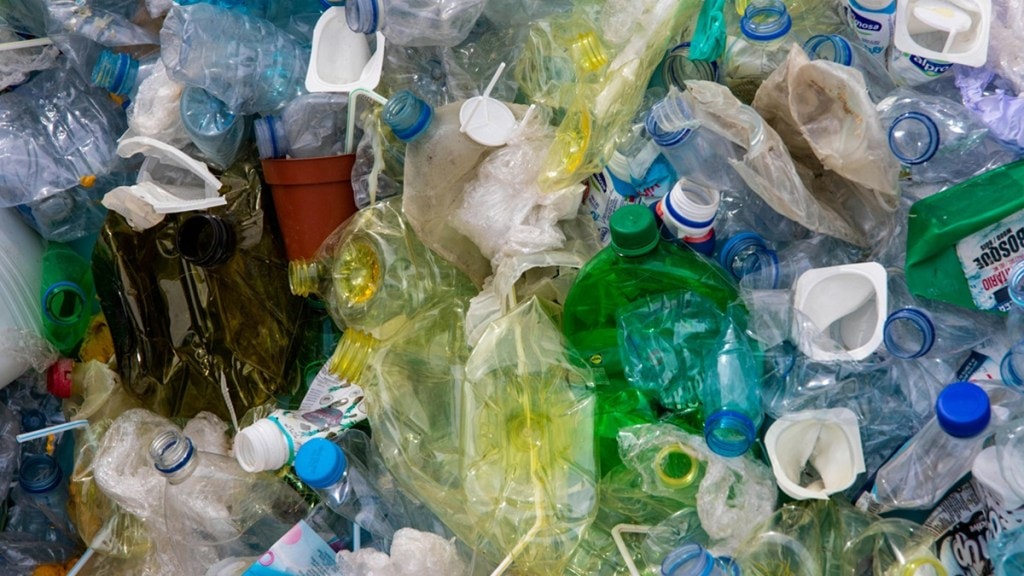– By Mahesh Girdhar
Earth Day serves as a clarion call for the global society to rally together for decisive climate action. This year, the theme of ‘Planet Vs Plastics’ serves as a sounding board for catalysing the momentum against plastic pollution through effective waste management. Undeniably, unbridled plastic production and huge waste mismanagement have caused irreversible ecological damage.
Global plastic recycling rates, particularly in developing countries, are usually poor – as low as 15%. With a population exceeding 1.4 billion, India generates plastic waste of 26,000 tonnes daily. Needless to say, most of this is not recycled. If not recycled and phased out efficiently, plastic remains a soil pollutant for generations.
Amid the global challenge, however, novel solutions are emerging to transform plastic waste into environmental currency via a circular approach linked to a plastic credit system, much like carbon credits.
Collaborating to Recycle and Monetise Plastic
This is where the opportunity arises to ‘monetise’ plastic waste by shifting to a circular economy model via the creation of livelihood options to manage waste. As unique packaging materials, plastics have several critical and essential applications, making it impractical to entirely stop their use.
However, it is imperative to manage plastic waste efficiently to minimise the environmental impact. Organization for Economic Cooperation and Development (OECD) data indicates that nearly half of the plastic waste is disposed of in landfills.1 With global recycling of plastic only being in single digits, this represents a massive opportunity to implement better collection and waste management systems for plastic. In 2019, India initiated its action plan on managing plastic waste by banning single-use plastics (SUPs) and naming 18 plastic items in the banned list.
Nonetheless, more must be done if the worldwide war against plastics is to be won. To begin with, a collaborative model is imperative where individuals, institutions, government bodies as well as public and private entities work in unison towards the common cause of curbing rampant plastic pollution. Institutional stakeholders must shoulder the onus of ensuring plastic is produced, collected, recycled and reprocessed responsibly. For example, plastic waste could be recycled into granules and used for making outdoor furniture, door and window panels, road dividers, etc.
Plastic Credit Model and Other Innovative Solutions
Additionally, the plastic credit model should be deployed, seeking inspiration from the carbon credit system. Such a model would allow companies to offset all plastics used in their operations by financing projects such as Waste To Energy and Waste To Bio Energy production plants that promote the management and recycling of plastic. Towards this goal, corporates must adopt the principles of circularity by signing up for plastic credits while abandoning the take-make-waste model that is presently prevalent. The plastic credit model will provide available, accessible and efficient waste reduction measures alongside cost savings. Simultaneously, it can set an industry benchmark, motivating other firms to follow suit.
Yet, this can only become a reality with concerted steps by all stakeholders, including funding efforts. According to Multilateral Investment Fund (MIF) report, in calendar year 2021, the entire circular economy segment received a paltry $6 million in funding. Conversely, the fintech space garnered $5,077 million while edtech bagged $5,788 million.2 Fortunately, turning the focus on the circular economy, the Interim Budget has allocated Rs10,000 crore to create 500 waste-to-wealth plants across India.
While organic waste is converted into manure for farming, inorganic waste such as plastics, packaging materials, metals and the like can be recycled and reused, as mentioned earlier. Consider the case of the Construction and Demolition industry, deemed the second-largest consumer of plastics at 2.6 MT. The segment has vast streams of waste constituting organic materials that can be transformed into environmental currency via segregation, recovery, and reprocessing.
Government entities apart, private firms could join hands in the collective transition towards a circular economy that emphasises reducing and reutilising waste via effective waste management systems. All stakeholders, including citizens, the government and private companies must be involved in the shift towards a circular economy if this is to become a ground reality.
In India, there are multiple instances of innovation being steered from the grassroots level as citizens take charge of protecting their surroundings and the environment. In 2021, a village in Manipur, Saihenjang, was declared a ‘Plastic Free Village’, after the locals toiled for three years to free their neighbourhood from plastic.3
Policy Interventions and Re-evaluating the Role of Plastics
Additionally, policy interventions are vital to support recycling and waste management measures. Significantly, policies like the EPR (Extended Producer Responsibility) Guidelines for plastic packaging through the PWM (Plastic Waste Management) Rules have accelerated ground-level action, steadily generating momentum for circular plastic packaging. Such policy measures can be instrumental in attracting more investments in high-quality recycling.
In summation, the role of plastic in various value chains requires re-evaluation. Although banning SPUs is a good start, more must be done to regulate the production and consumption of plastic in industrial and commercial use. Society at large must embrace sustainable lifestyle practices and the principles of circularity using a cradle-to-grave approach. Accordingly, plastic waste must be curbed by designing products in a manner that easily enables recycling and reduces wastage. On Earth Day 2024, pledging support to a circular economy is the least humanity can do to counter climate change consequences.
(Mahesh Girdhar is the MD & CEO at EverEnviro Resource Management Private Limited.)
(Disclaimer: Views expressed are personal and do not reflect the official position or policy of Financial Express Online. Reproducing this content without permission is prohibited.)
